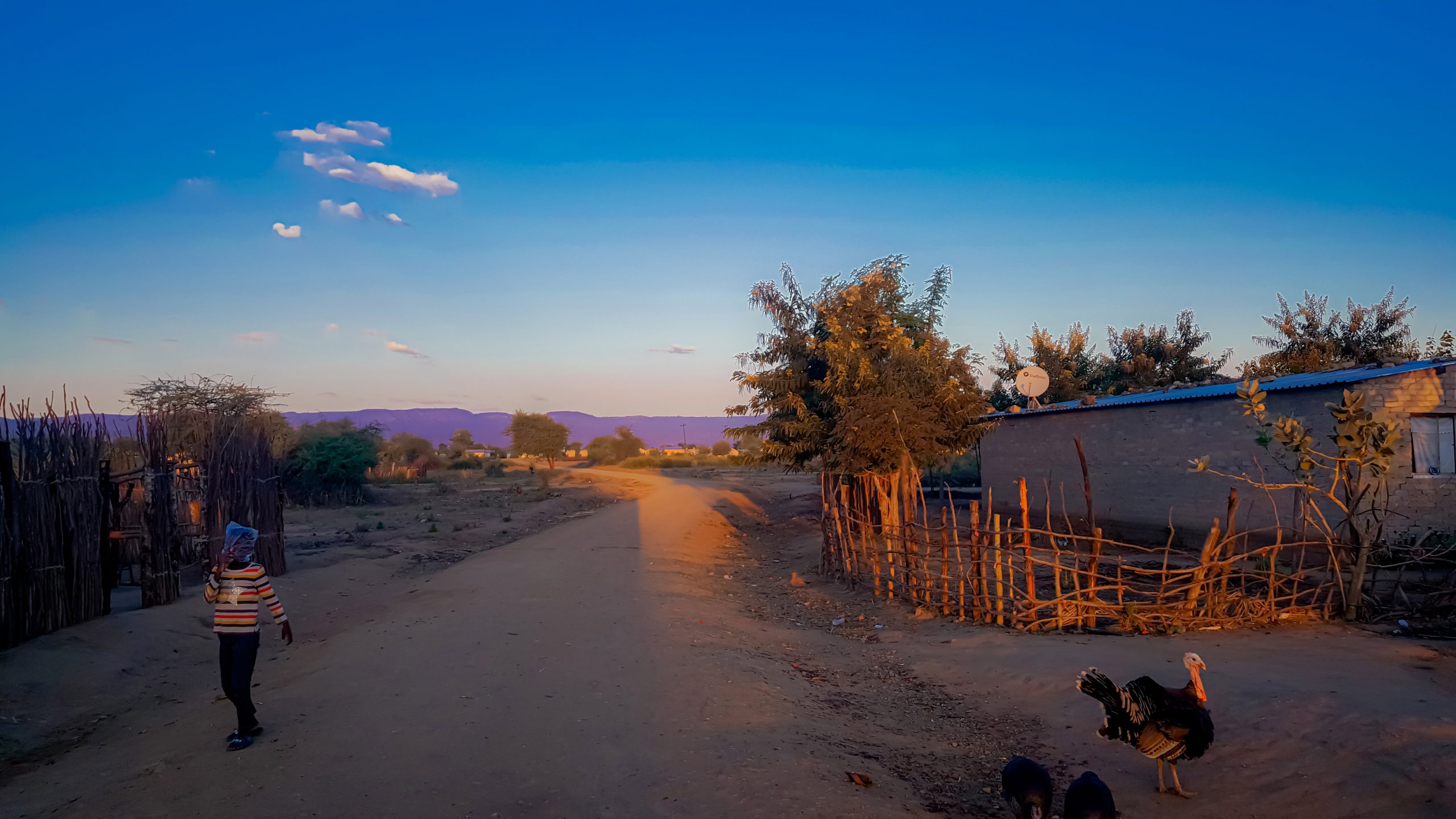Jeanne Muhimundu on the hope, aspirations and self-reliance that is being built within the Tongogara Refugee Camp in Zimbabwe.
As you take Chipinge road from the Mutare township, on your right, you will encounter a signpost that smiles at you and tells you “Welcome to Tongogara”. Underneath is a brown dusty road that cascades toward the Camp, winding its way through the surrounding host community.
The supposedly five-minute drive on the bumpy road will leave you with a memory of the day, especially during summertime from September to November when the south-eastern side of the country is blazing with heat.
You will then arrive at a beautiful landscape situated next to a game park and a faraway mountain.
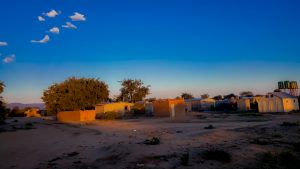
This is Tongogara Refugee Camp, south-eastern Zimbabwe, home to people originally from almost a quarter of Africa’s countries. They have fled a disruptive past but now living in harmony, not only amongst themselves, but also with their host community.
The population is made up of over 15,000 people with the largest majority from the Democratic Republic of Congo, Burundi, Rwanda, and Mozambique. A few are from Somalia, South Sudan, Mali, Ivory Coast, and a few other African countries.
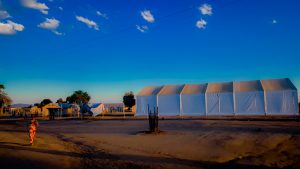
Those of us who have found a place of safety at Tongogara not only appreciate the government of Zimbabwe for opening its doors to us, but also for more enabling policies that allow the refugees living here to become self-reliant.
Through the initiatives and generosity of the government, the UNHCR, and other humanitarian organisations, Tongogara is open to business with the host and refugee communities importing and exporting goods in and out of the camp.
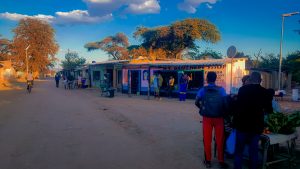
Notably, a variety of food and non-food items move freely on daily basis. The services sector is also thriving, with professional hairdressers and tailors able to fully meet their clients’ needs.
This freedom is allowing refugees to support their families and to develop new skills.
Angel* a young woman from Rwanda who was displaced with her family runs a beauty salon in the camp. She is also a trained tailor in African attires. Angel imports hair braiding and clothing material outside and sells them within the camp.
I am proud of myself as the only girl at home who is self-employed
This small-scale business raises income and helps her three younger siblings to continue their education at a local school.
When I asked her whether she loves her job, she said, “I am proud of myself as the only girl at home who is self-employed and bring food on the table and when I think of my business, I think am raising an empire.”
Another beneficiary of vocational skills offered at the camp is Gabriel, a disabled refugee from the Democratic Republic of Congo.
Gabriel fixes damaged phones, laptops, televisions, and other electric gadgets. He can make close to 10 US dollars on average and more on a good business day.
Like Angel, this enables him to support his family with supplementary food and clothes. He is optimistic about opening a big shop where in addition to offering a repair service, he would sell phones and laptops.
“I never thought that my life will be useful but with the ICT skills I learned from JRS (Jesuit Refugee Services) I can fix all kinds of smart devices and people pay me,” he told me.
The focus here is not just on skills but on sustainability and innovations that will also support the push to protect the environment. Many of the activities are focused on young people.
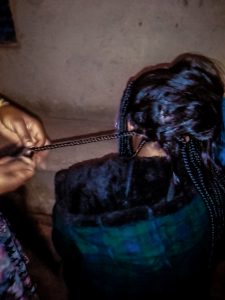
The UNHCR’s Global Compact on Refugees was launched to provide guidance on how the international community can cooperate to improve the lives of refugees. For instance, the Transformation Innovation Hub (TIH) was founded in 2021 by two young refugees who had an opportunity to travel for a one-year entrepreneurial training in Uganda.
It aims to uplift the refugee and marginalised host communities through creativity, invention, and innovation. After the construction of its building out of wasted bottles, it is currently training its scholars to innovate not only solutions to their community’s problems but from a global perspective.
It aims to uplift the refugee and marginalised host communities through creativity, invention, and innovation.
Refugee Child’s Coalition for Climate Action (RCCA) also founded in 2021, is refugee youth-led initiative dedicated to creating awareness about climate change and environmental protection, conservation, and restoration with an effort to coordinate young people to take the advocate lead in the refugee and immediate host communities.
The RCCA undertakes some significant work towards climate change adaptation and mitigation so as to ease environmental degradation. Through its strong coordinated awareness campaign, its activities range from conducting child-youth friendly sessions, tree planting, and clean-up campaigns.
Despite these developments, a lot more need to be done in the specific areas of education, and health, but also making sure refugees have durable solutions that can withstand life’s challenges.
Martha is a single middle-aged mother from Burundi. Her life has been an unpredictable curve. “My husband used to beat me. It was part of our culture that women should do their husbands’ biding but whenever I protest or complained, I got beaten.”
Martha started selling vegetables like cabbage, onions, and tomatoes and later established a shelter at a market known as “Women’s market”. This is a vegetable open area where all forms of fresh vegetables are sold mostly by women and girls. In fact, it is a backbone that feeds the camp with healthy food.
Following her separation from her husband, her situation was unbearable as she raised the children single-handily. She was depressed until she decided to take the action that pushed her “on the street” as she refers to her business start-up selling vegetables.
Martha was hopeful until Covid-19 shut her business. The money she raised was used by the family during the lockdown and she is currently struggling to restore herself.
In order to generate even more progress, I would argue for free access to quality education in ICT, vocational skills and for the provision of scholarships for refugees to pursue further education.
I would also encourage investment into mentoring programmes, internships and work placements particularly for those who graduate from tertiary institutions. Finally, we need the more financial support for refugee youth-led initiatives and the enactment of policies that can overall facilitate the integration of refugees within the country.
Jeanne Muhimundu is a child protection advocate who is currently undertaking the UNHCR Journalist Mentorship Programme.
*Name has been changed
All images taken by the author
